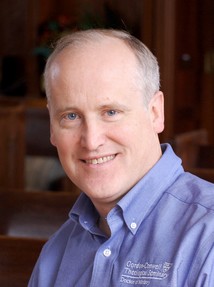





 I recently visited my family practice physician’s office for my annual physical exam. Before I saw the physician, one of the nurses measured my height and weight; took my blood pressure, temperature, and heart rate; and then began to ask me a series of standard questions about my diet, exercise, sleep patterns, etc. In the midst of those health-related questions came one that might have seemed out of place, at least in a physician’s office, or at least for me: “Do you feel safe at home?…”
I recently visited my family practice physician’s office for my annual physical exam. Before I saw the physician, one of the nurses measured my height and weight; took my blood pressure, temperature, and heart rate; and then began to ask me a series of standard questions about my diet, exercise, sleep patterns, etc. In the midst of those health-related questions came one that might have seemed out of place, at least in a physician’s office, or at least for me: “Do you feel safe at home?…”
My first –but thankfully unspoken—response was: “Do I feel safe at home?!… You just measured me! I’m six feet tall and weigh over 200 pounds! Of course, I feel safe at home!” But then I remembered that my much smaller wife and daughter and my much feebler father-in-law, who lives with us, are also patients in this practice. I’m grateful that they are regularly asked this question for their own protection, even if I would be the most likely threat to their safety.
My spoken response was to affirm that I did feel safe at home and to thank the nurse for asking me. I then shared that part of my work was training clergy to address the problem of domestic violence. I went on to ask about the responses she had received to the question. Almost always the answer was, “Yes, I feel safe at home.” Occasionally, someone shared about the threat or reality of domestic violence, which led to a referral to social services or law enforcement. Sometimes the answers raised other concerns about safety, such as a fear of tripping and not being able to get up or of a strange neighbor.
I’ve had this conversation multiple times with multiple nurses over the years as this question has become a standard part of any appointment in the health system that my family practice physician is a part of. You might think it is a waste of valuable health care time, given how relatively infrequently it surfaces cases of abuse. However, given the nature of domestic violence and the struggle that most who are affected have of owning and then voicing its reality, having someone in authority, a health care professional, raise this question on a regular basis can have a beneficial cumulative effect, tipping the balance that enables someone to seek help eventually.
Just asking the question, “Do you feel safe at home?, can shatter the illusion that many who feel unsafe have that no one else has this problem and no one cares that they do. If everyone is asked this question, then surely there are others out there who struggle with it –lessening the shame that keeps many suffering in silence—and raising the possibility that there may be a way out. Since someone in authority, who potentially could do something to resolve the problem, is asking, those experiencing domestic violence are empowered, and abusers are cautioned that their actions may not go unnoticed forever. I’m both grateful that asking, “Do you feel safe at home?” has become routine among health professionals and challenged as a religious professional about our relative silence in comparison.
David Currie, 15 August 2019
David A. Currie has served in ordained ministry for three and a half decades and is currently Dean of the Doctor of Ministry Program & Ockenga Institute and Professor of Pastoral Theology at Gordon-Conwell Theological Seminary.